Independent RPG Month: Week One Recommendations
It's Independent RPG Month! Here are seven games you should check out.
Two weeks ago Professor Dungeon Master announced that July was going to be Independent Tabletop RPG Month on his YouTube channel. I’m not 100% sure that he invented the concept, but when I did a quick Google to read about it to help with guidelines for recommendations his was the first really informative link that showed up on my Daily Me (see Cass Sunstein’s excellent #Republic for what I’m on about there).
The good Professor, DM not Sunstein in this case, is asking us to avoid discussing the World’s Largest Role Playing Game and to focus on independent creators. That’s a partially worthy goal. I say partially because I don’t think the two are mutually exclusive and think that focusing on independent at the expense of the popular could lead more to speaking to the indie choir more than recruiting more ecumenical gamers.
In my recent chat with Alan Bahr about his game Swords of Meropis, an entirely independent RPG, I talked about how when I was a kid it seemed that gamers were more ecumenical in their tastes. We were always looking for new games to play. Not just new genre, milieu, or settings, but entirely new mechanics. Even the publisher of the World’s Largest Role Playing Game at that time published numerous rules sets. There was no unified assumption of mechanical basis and I think that was a good thing. Most gamers today are satisfied with either a single game or in some venturous cases different games with similar systems.
I’m not just referring to fans of dungeons and/or dragons in this statement. Many Powered by the Apocalypse fans are more than happy to limit themselves to Apocalypse games. So too FATE or Blades in the Dark fans. All to rare is the modern multi-system gamer who plays DIY and Sell-Out games. I am not opposed to loving any of these games. In fact, I am advocating buying all of them right now. I am also not trying to shame people who feel more comfortable with their favored rule set. Time is precious and we only have so much of it. There is nothing morally wrong with limiting yourself to one core game foundation, nor is there anything morally superior about being an ecumenical gamer.
Nevertheless, I do think those who focus on one area of gaming are missing out. Then again, I think that about film and fiction genres, music, sports, comic books, video games, and pretty much anything else it is possible to geek out about.
There is more in the world worth experiencing than one can experience in a lifetime. We live in a rich world and I understand that even limiting oneself to one smaller slice of a geek topic can provide a rich lifetime of worthy pursuits with vast variety. That’s just not my vibe. I understand the value of a deep dive into a narrow area. I can talk political polarization (the focus of my career for 15 years and my Ph.D. studies) until the end of time. I also want more from the rich tapestry of life and love dabbling in other places.
Whew, okay. That was a really long way of saying “it can be fun to step outside of the familiar from time to time.”
It also served a greater purpose of highlighting why my list of independent games won’t be aligning with Professor DM’s broader “independent creators” guideline and will be focusing on the more narrow category of “independent games.” I love independent creators and support many, but if I am going to be serious in promoting things different from the familiar paths of “d20+ability+proficiency bonus vs target number” I am going to go into other systems entirely. I will still promote those creators during the month, as I’ll be talking about all kinds of games, but I will also be talking about the World’s Largest Game too at some point during the month.
What do I mean by independent games? Given that almost every RPG company is in reality a small business, with a couple of exceptions, my only defining characteristic on this is “Games that aren’t D&D or D&D adjacent mechanically.” This means that I won’t be recommending Pathfinder 2nd Edition (though I might recommend another game system that uses the setting) or Old School Essentials. Additionally, for me to recommend the game it must be available for purchase either physically or on pdf.
And with those caveats, let’s jump into Week 1.
1. Tunnels and Trolls
Tunnels & Trolls — While this game may technically break the “independent creator” rule at the moment. Rebellion Publishing just bought the game rights from Webbed Sphere Inc. who bought the rights from the Rick Loomis estate in 2021. Webbed Sphere Inc. didn’t really do anything with the property, Rebellion Publishing looks like they will do more with the property. The game provides an opportunity for them to dive deeper into the table top gaming space, something they’ve already shown a desire to do with their republishing of older Judge Dredd board games and an in house magazine based RPG series called Adventure Presents. I’ll be posting reviews of the Adventure Presents games later this month.
Tunnels & Trolls is one of the earliest role playing games ever produced and it was created as a direct response to Dungeons & Dragons. Lawrence Schick wrote that the game was the second role playing game ever published in the invaluable history of rpgs Heroic Worlds, but Jon Peterson’s analysis regarding the Rules to the Game of Dungeon demonstrate that it was beaten to the punch by another small print run game.
Tunnels & Trolls was created as a reaction to Dungeons & Dragons. Some friends of Ken St. Andre wanted to play D&D and handed him a copy to run. He couldn’t understand the rules, and having read the “Little Brown Books” many times I can see why. Ken St. Andre describes how he created the game in the introduction to the preprint of the 1st edition as follows:
The key point here is that he wanted a simple game that was not derived from miniature gaming. In that way, his game is very different from Dungeons & Dragons. While we may play D&D with a theatre of the mind approach, or not, the mechanics of the game are very much rooted in miniature skirmish rules. I’ve got an extensive work on this coming soon that includes references to
’s excellent Building Blocks of Tabletop Game Design.Tunnels & Trolls isn’t based on skirmish rules, instead combat (when it’s done at all) is based on abstract die roll comparisons where the higher roll wins and the difference is the damage. For example, a player character might roll 4d6 and add 12 to the roll for high attributes, while a monster might roll 4d6 and add 20 to the die roll for its monster rating (only in the first round in some editions after which it would be +10). It’s very abstract and open to interpretation.
The Saving Throw mechanics of T&T are also very different from D&D at the onset. First, because they were attribute rather than attack type based (modern D&D “borrows” from T&T in this respect) and second in that they are given a “level of difficulty” so you might have to make a 2nd Level Strength (or Luck) Save in Tunnels & Trolls. The basic formula for a saving roll on 2d6 in T&T is:
or for higher levels the following equation minus the stat.
So a first level character with an average (11) Luck would need a 9 or better on 2d6 to save. That might seem very unlikely at first (approximately 28%), but the fact that Tunnels & Trolls is the first “exploding die” system (in this case exploding on doubles) increases the likelihood significantly and adds a nice random element to the game.
I highly recommend the 5th edition edited and partially illustrated by the very talented Liz Danforth.
2. Good Guys Finish Last
As I mentioned in my recent YouTube interview post, the folks at Better Games were vital in the development of modern storytelling rpgs. They don’t often get as much credit as they deserve, but their games remain innovative and vital today decades after they were created. They were truly decades ahead of their time. Characters in Better Games Free-Style Role-Play games have no numerical statistics, instead they have a number of narrative descriptors that describe how their characters function.
It’s an innovation that works in a number of settings ranging from Fantasy to Horror, but my favorite example of it was in Better Games two comic book inspired games Good Guys Finish Last and Villains Finish First that were published by Space Gamer/Fantasy Gamer magazine when Better Games owned the rights to that title.
Good Guys Finish Last has been rereleased by postworld games with a much improved layout updated by jim pinto and I highly recommend checking it out. While I could go on and on about how important Better Games was to the storytelling game scene, I will share jim pinto’s introduction instead. Given that jim has gone on to design a number of excellent games in the storytelling game space, his praise speaks volumes about the direct influence Better Games had on the genre.
To give you another example of what characters in Free-Style systems look like, though you are free to look at the link to my blog post above, here is a glimpse at a character sheet in Good Guys Finish Last. You’ll notice that all of the abilities are named and the only number listed is the modifier. I wish jim had opted for the actual wound chart for each character, rather than listing numbers, as that shows which keywords add to which damage type and help give the game even greater narrative focus.
3. Champions: The Super Hero Role Playing Game
Yes, I know that this is two super hero role playing games on the same list, but I love super hero role playing games enough that I could do a list of just 31 super hero role playing games worth your time and have that be the list of independent rpgs. Since this is independent rpg month and not super hero rpg month (every month is super hero rpg month, but this year it’s August because of the upcoming Marvel release).
As the above paragraph implies, there are a ton of super hero role playing games out there and most of them are worth checking out for one reason or another, but Champions stands above them all. I write those words even as DC Heroes is my favorite super hero game. Champions wasn’t the first super hero role playing game, that was Superhero ‘44. I don’t consider it the best super hero role playing game. It is, however, the most important super hero role playing game. If you read old copies of Space Gamer magazine, available for purchase from Steve Jackson Games at an affordable price so don’t pirate, you will be able to see some of the far reaching impact the game had. From its extremely balanced point based system (once again not the first to be point based, but maybe the first to be rigorously balanced mathematically) to its robust combat system designed to emulate the panel by panel storytelling of the comic books, Champions is a masterpiece in every edition.
It’s available in multiple editions, but I recommend the Second, Third, and Fourth editions of the game and consider the Fourth edition to be the absolute peak of the game at release. Once you start adding some of the Fourth edition splat books, it begins to get overbearing but the core book is all you need for mechanics. Just it, Strike Force (maybe the best super hero supplement ever written it’s for Third edition Champions not Fourth but it is compatible), and Classic Enemies is enough material to run decades of super hero games.
4. Dragon Warriors
Are you looking for a game that is easy to understand, has tactical complexity, has room for significant free form storytelling, and has a robust Medieval European (England really) setting with heavy doses of influence from Michael Moorcock’s Elric Saga? Then Dragon Warriors is your game.
Dragon Warriors can be played in a manner that emulates light hearted or grim and gritty Fantasy fiction, but given the lethality of its combat system it does lean more towards the grim and gritty. The game has a number of innovations, the weapon damage system is something you really should check out. Weapons do a fixed amount of damage and after you roll to hit an opponent you roll penetration dice versus an armor’s protection value to see if you damage them at all. Only then do you apply weapon damage. It’s an interesting alteration on the armor as damage reduction paradigm and while it does make combat more tactical and sometimes slower, given the relatively low hit points that characters have in the game that never becomes an issue.
The game’s mechanics are deeply rooted in the world design, so this is not a generic Fantasy rpg. The rules and setting have a particular feel to them and it is an interesting feel. Oh, and one interesting tidbit, the game was originally published as a series of pocket book sized paperback volumes. I don’t know if it was the first game to be issued that way, but it is a pretty cool way to buy your books.
5. Troika!
Troika! is a game that thematically returns to an earlier era of role playing games when many of the designers didn’t feel constrained to emulating a single genre. Like Expedition to the Barrier Peaks or Metamorphosis Alpha, Troika! is a science fantasy role playing game that mashes together ideas from multiple genre to create an intriguing experience.
Mechanically the game is based on the classic Advanced Fighting Fantasy game that expanded upon the mechanics in the Fighting Fantasy Gamebooks. As such, it is an extraordinarily simple game to play and is very much designed with free-form, rather than tactical, play in mind. Since the Fighting Fantasy Gamebooks were designed to be played solo by young people reading a paperback novel, the rules had to be simple and more theatre of the mind focused. Troika! expands on that foundation with an interesting character creation system that includes some really interesting character options. Even if you don’t end up playing Troika!, there are ideas for you to use in any role playing game session.
Oh, and since the Fighting Fantasy Gamebooks are still around you might want to check them out too. They are really fun.
6. Savage Worlds
The Savage Worlds role playing system has been around for 20 years and it is without a doubt one of the most flexible role playing game engines on the market today. It has a great community and a large catalog of interesting products. I could go on for days about this game, and will write a formal review of it later with mechanical analysis etc., but this is getting long. The most recent edition of the game is the Adventure edition, but unlike many other role playing games on the market the changes from edition to edition in Savage Worlds are minor balance tweaks rather than complete revisions.
The game’s motto is Fast! Furious! and Fun! and the mechanics keep getting faster and furiouser, it’s up to you to make them funner. Thankfully, they have great products like Deadlands, Pathfinder (yep, that Pathfinder setting in a new rules set), the Super Powers (okay, that makes three super hero games) and Fantasy Companions, Flash Gordon, and so much more.
7. Castle Falkenstein
Castle Falkenstein is, like most games designed and produced by Mike Pondsmith, way ahead of its time. Yes, in the post-success of the Cyberpunk video game world, R. Talsorian and Mike Pondsmith might seem a far cry from the scrappy independent designers you might be expecting here. But the truth is that Mike Pondsmith’s story is one of being an overnight success that took almost 40 years. His original Cyberpunk game was a masterful game inspired by both Champions and Traveller that synthesized those games into a lethal experience that had MOOD. Man could Mike Pondsmith evoke mood.
Castle Falkenstein is a Steampunk role playing game, designed before Steampunk took off, in which the setting and mechanics are deeply intertwined. Given how tactically oriented Cyberpunk was, and is, one might expect some of that to leak into this game, but it doesn’t. Pondsmith is one of the most talented, and for a long time underrated, designers in the role playing game market and this storytelling oriented game is a perfect example of how to mesh milieu and mechanics and the mechanics don’t even appear until page 181 of the rulebook. Pondsmith wants you deeply saturated in the setting before he brings in the mechanics. Those mechanics are card based, because cultured people don’t play with dice as those are for riff-raff and ruffians, and are easy to learn and execute. All of the supplements are excellent, but as a fan of the Wild, Wild, West television show, I highly recommend Six Guns and Sorcery.
Conclusion
Okay, that was a lot of words. Probably too many for what I want to be a weekly list for the rest of the month. I’ll see you on Friday with the Weekly Geekly Rundown which will have dueling reviews of the new Tom Cruise film as well as a host of other interesting things.




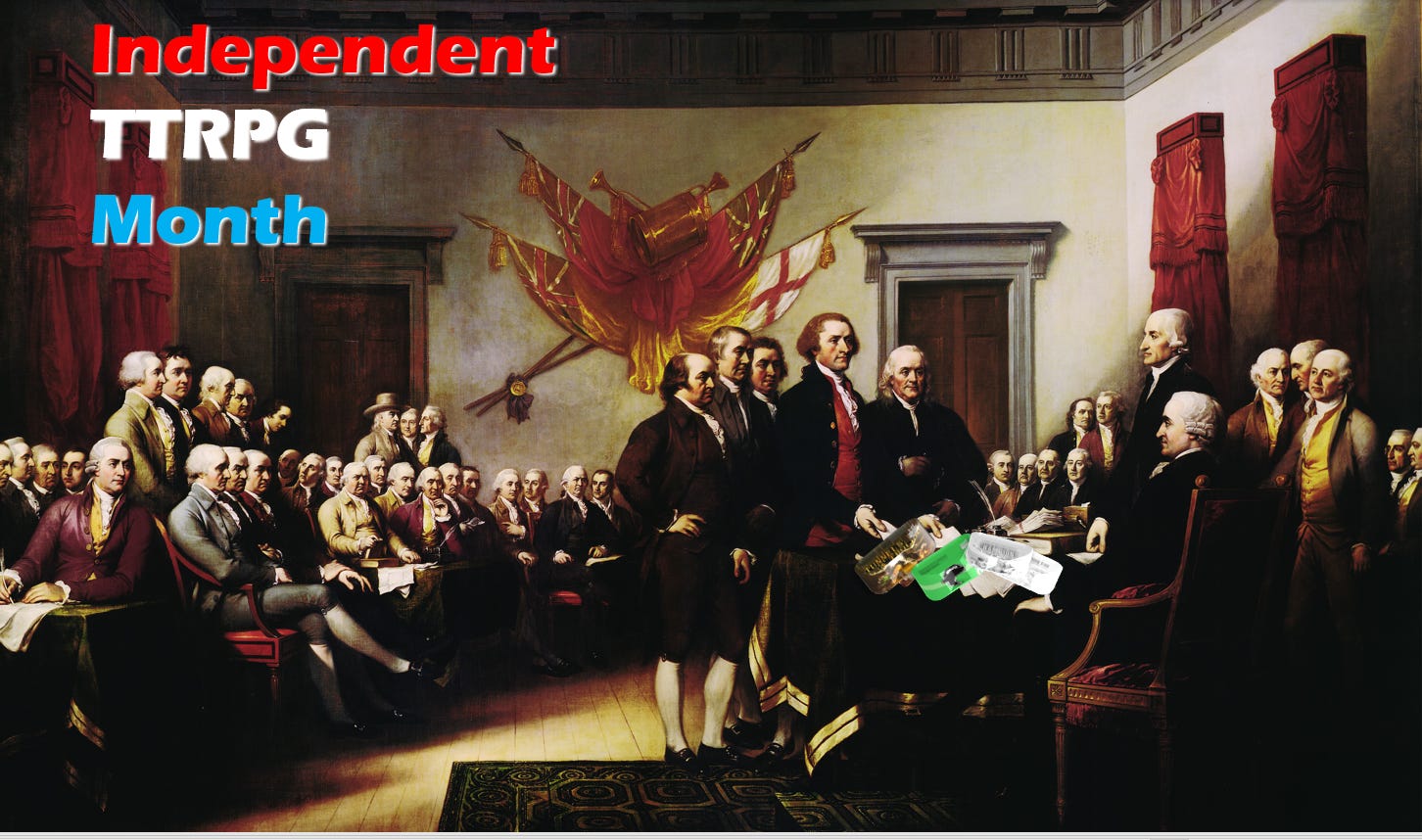
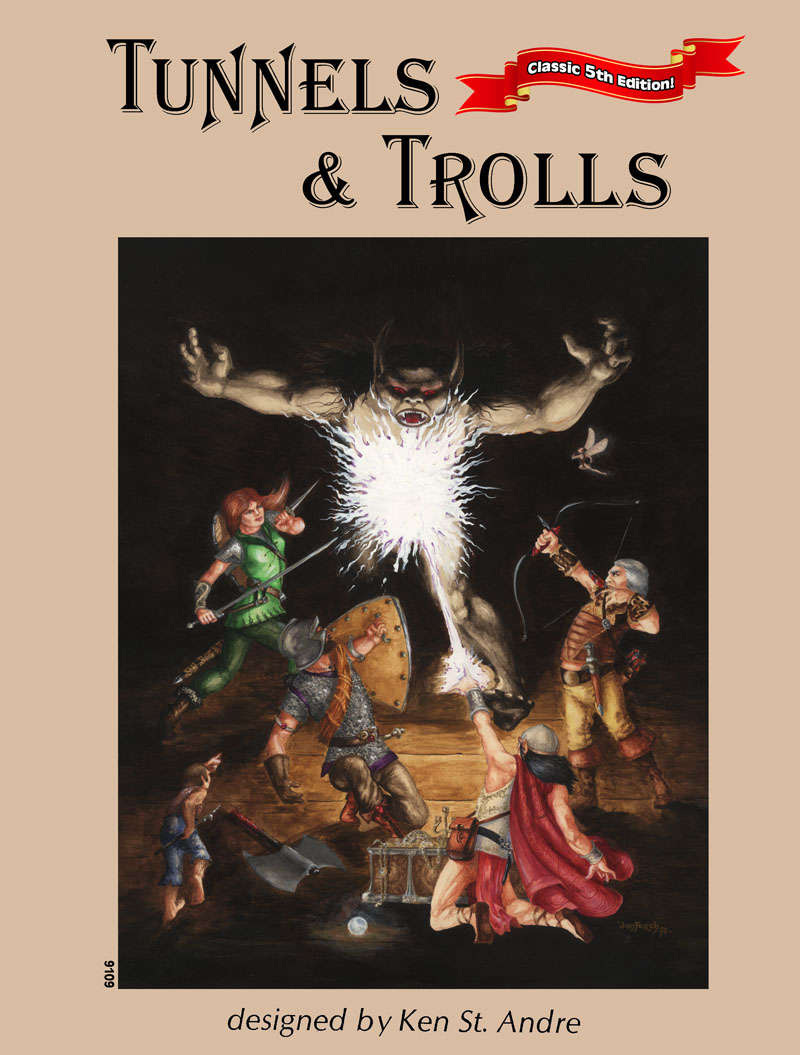

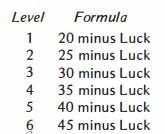

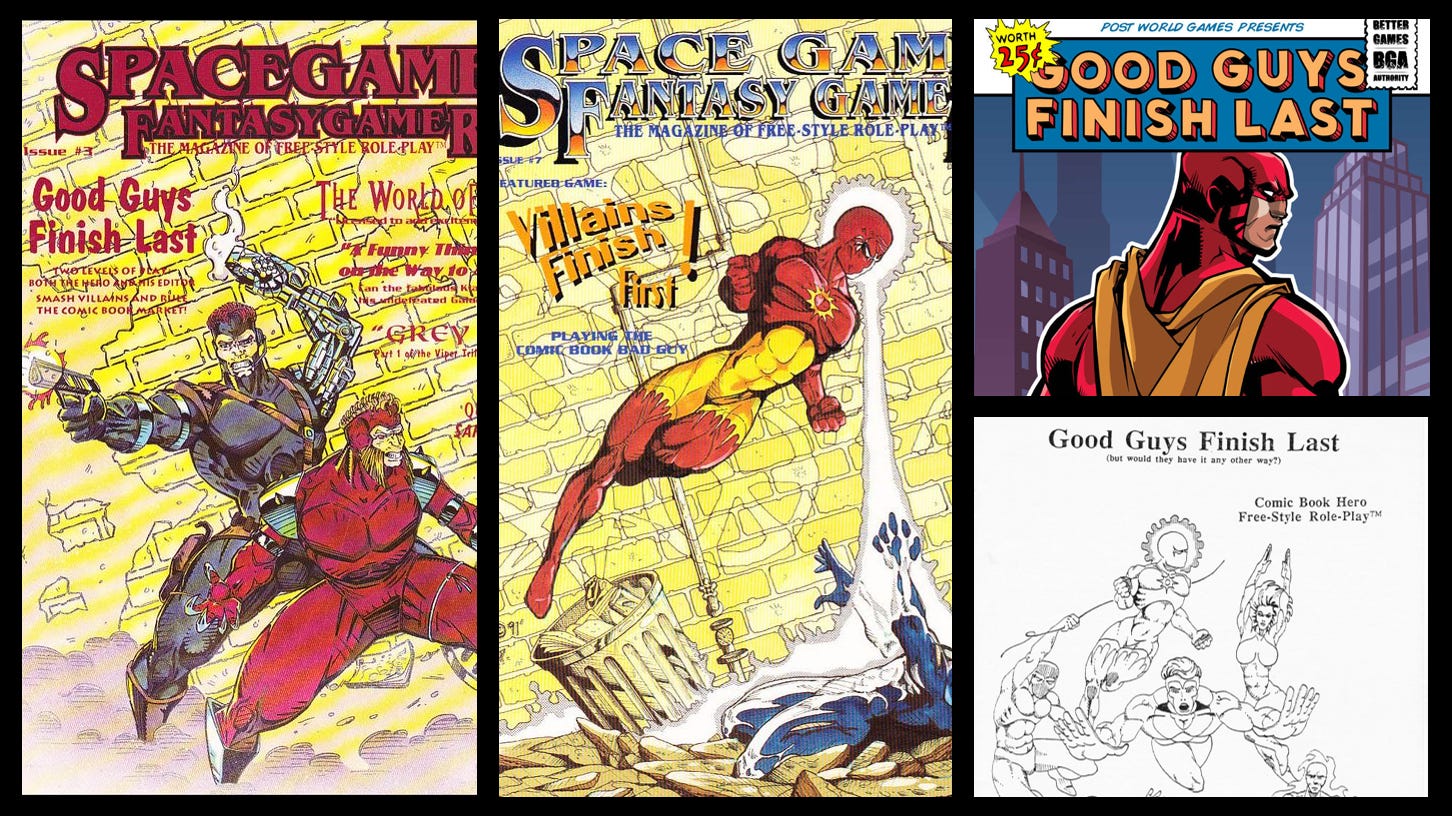
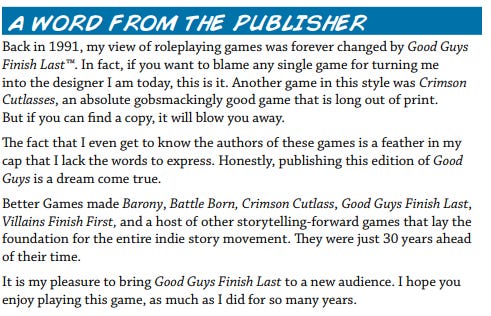
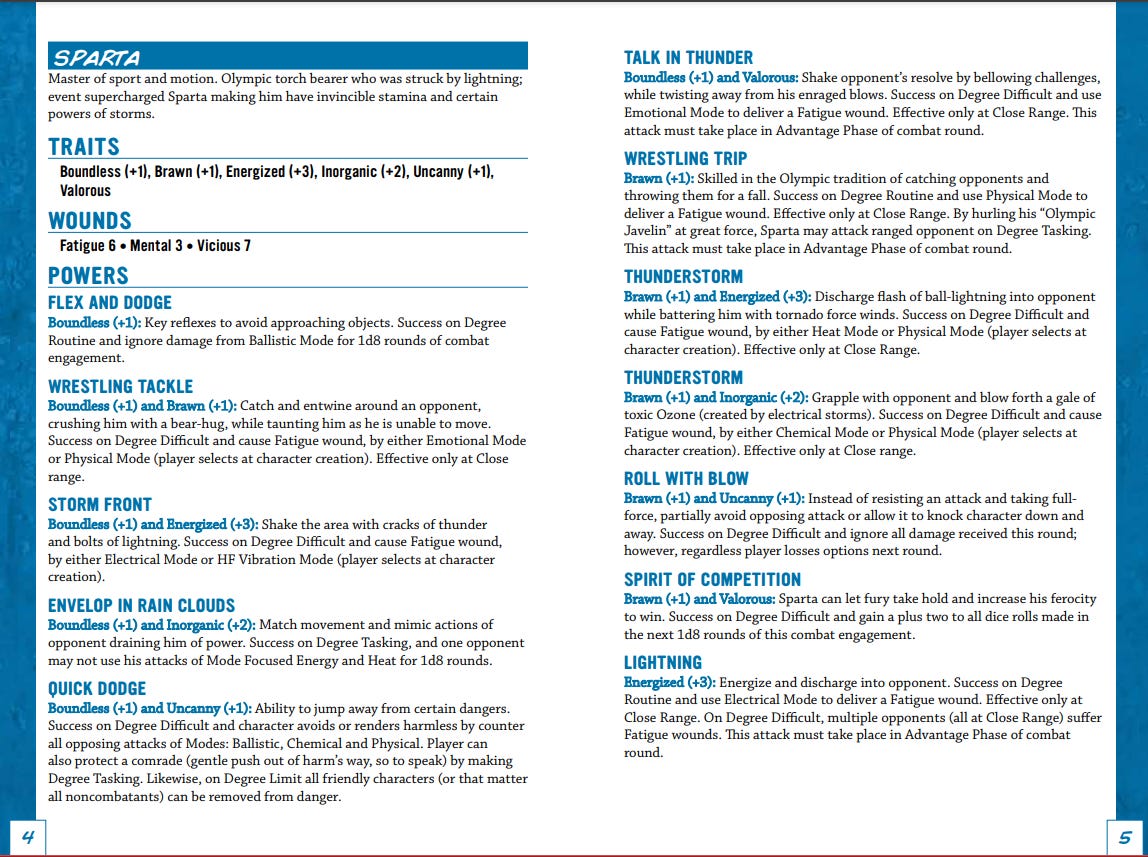
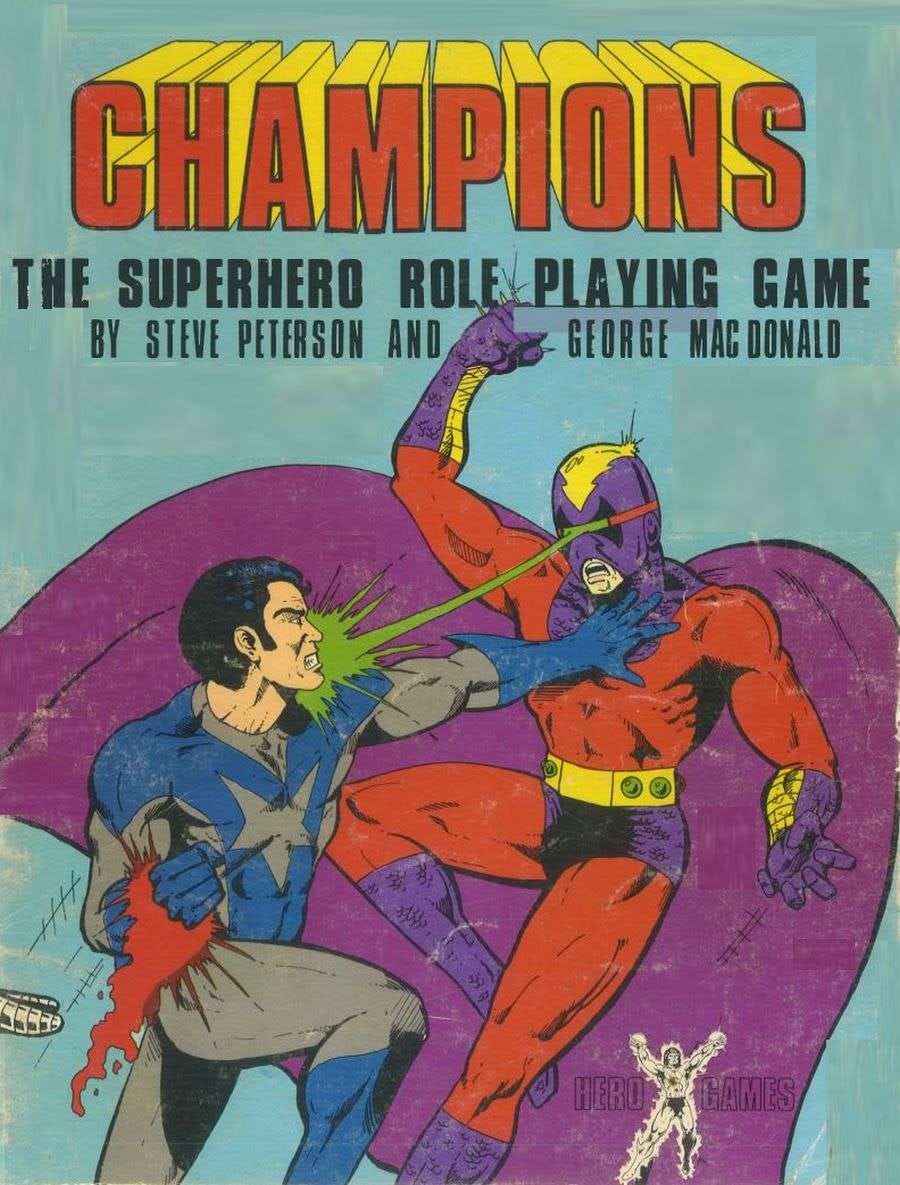
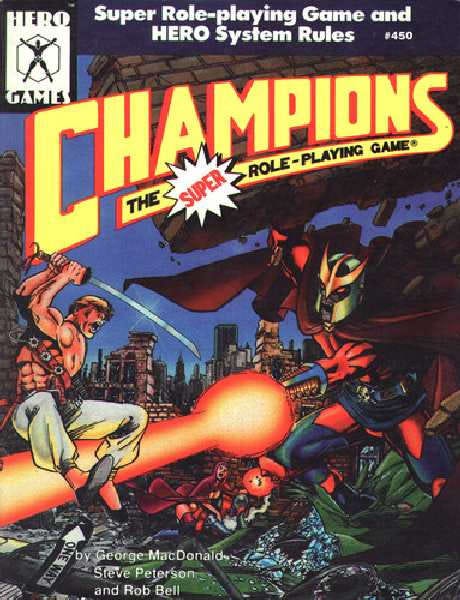
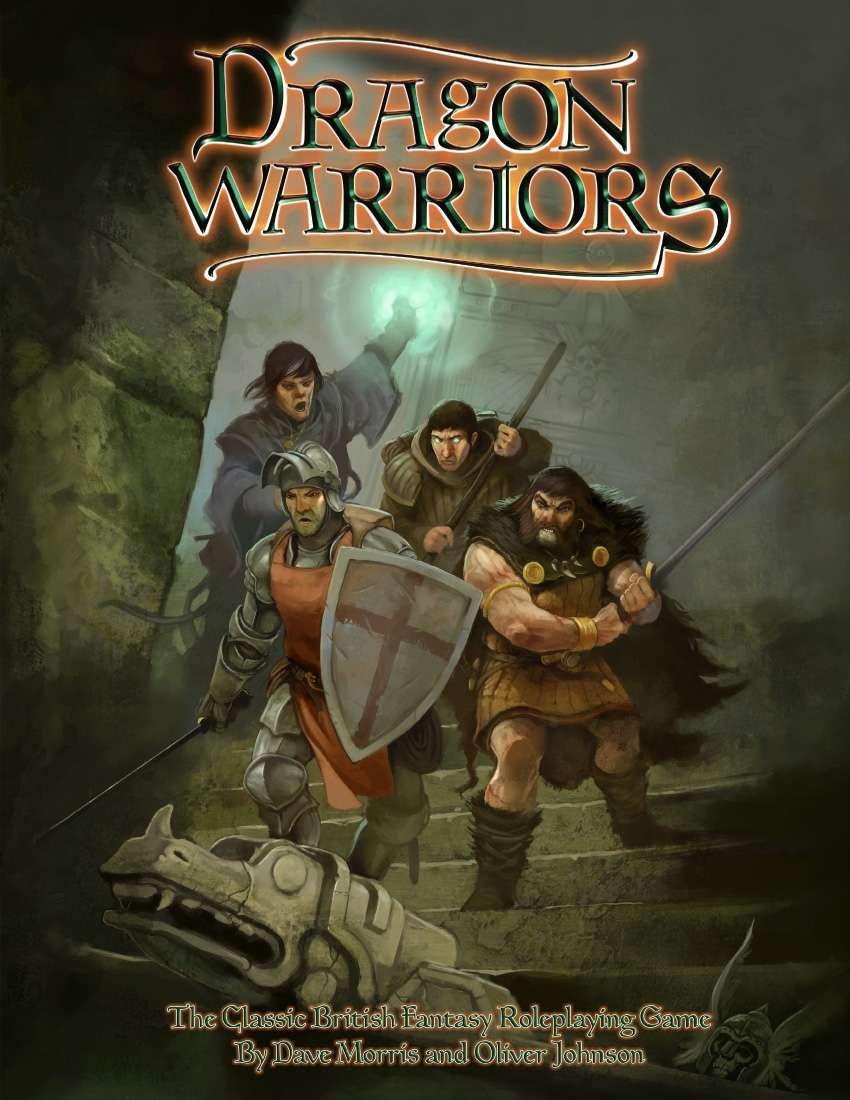
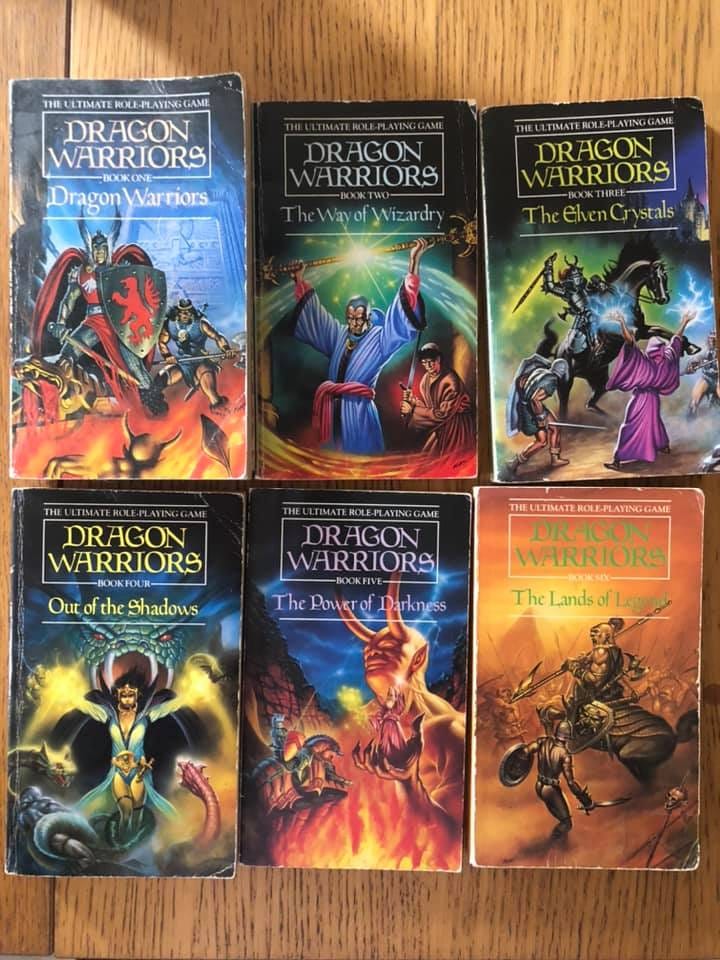
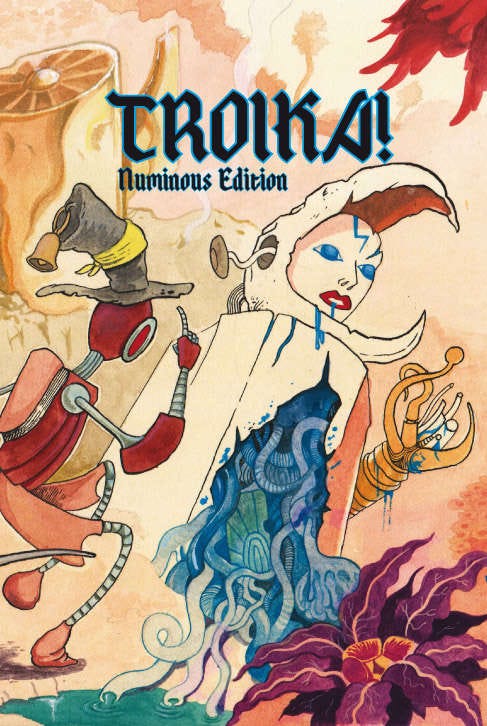
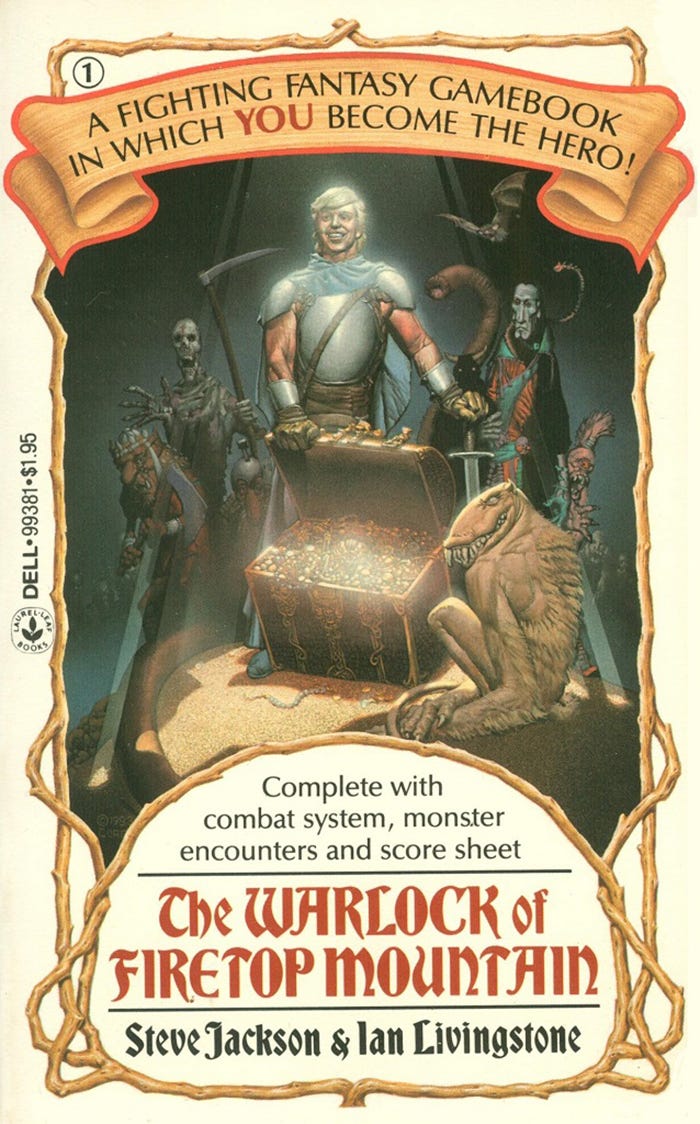
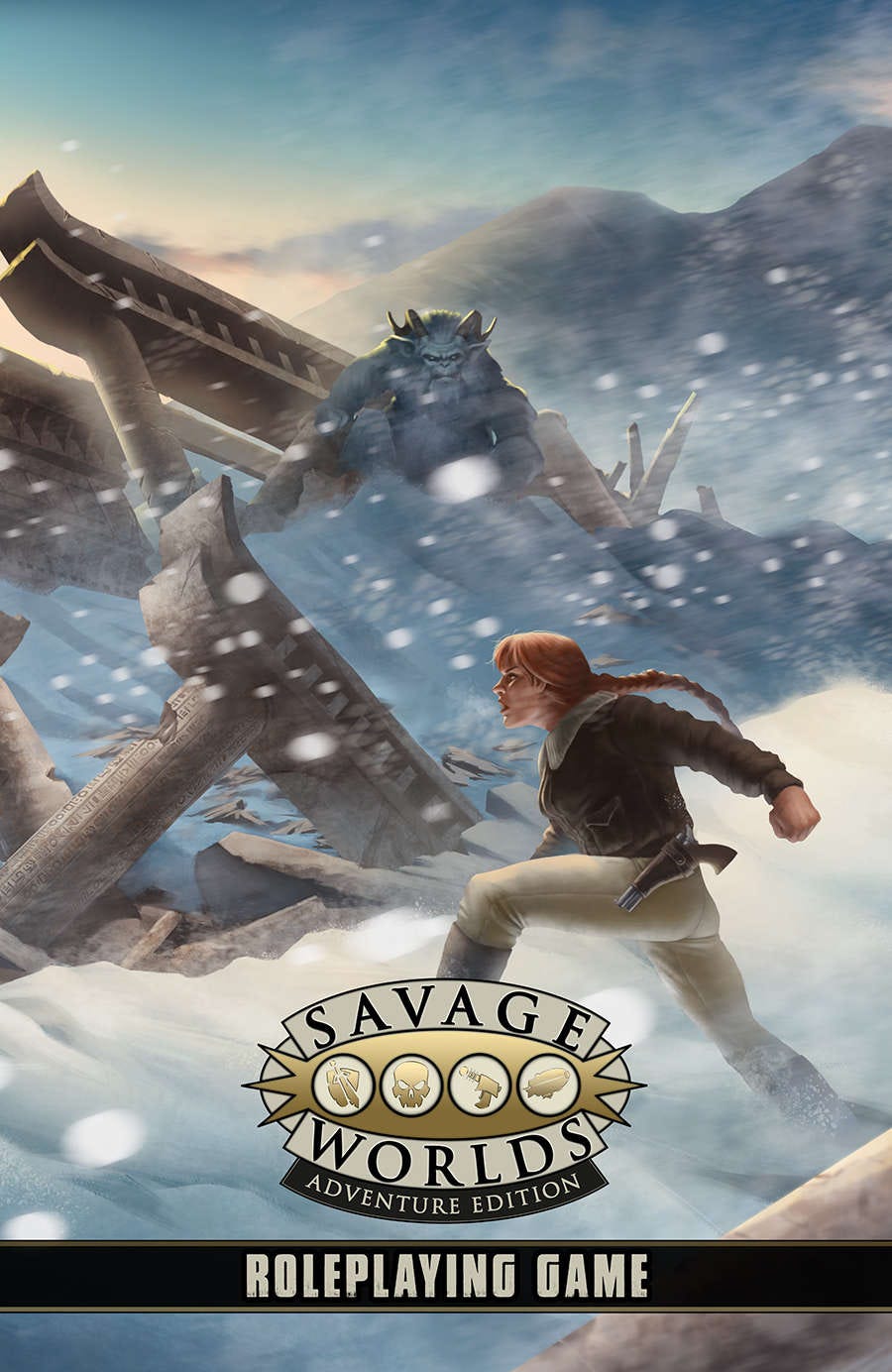
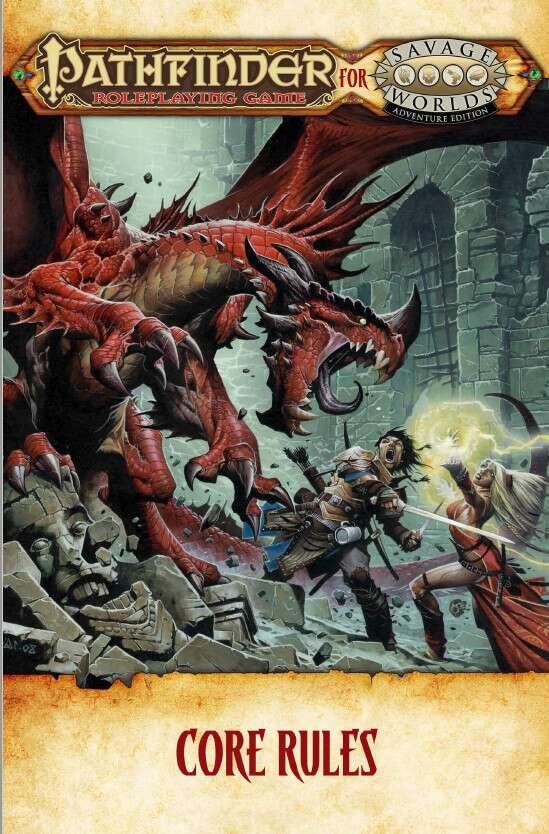
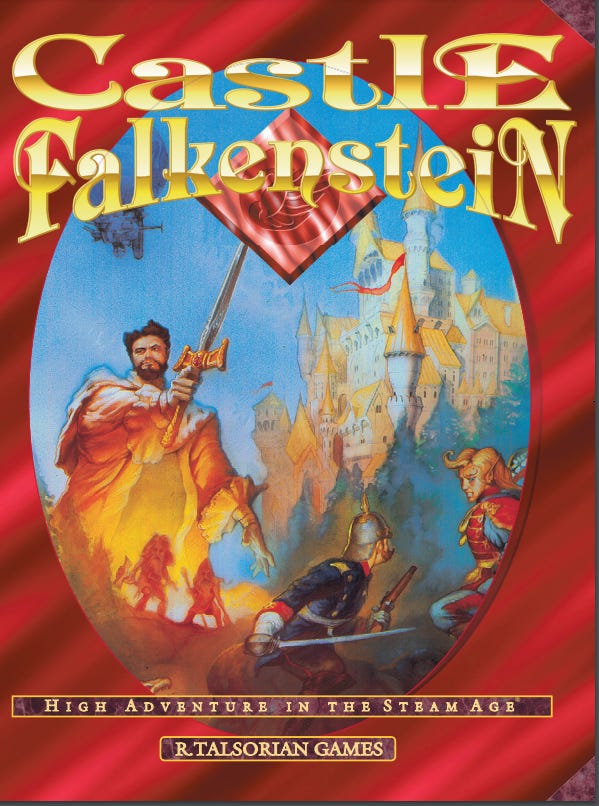
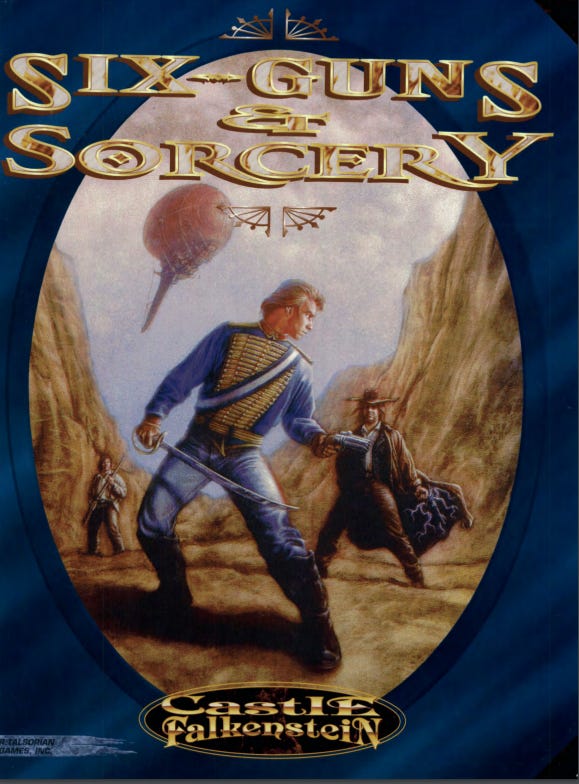
Tunnels and Trolls is one of those games I hear mentioned a lot, but no one seems to talk about. I didn’t even know it was purchased by someone new! I need to check it out, especially its solo content.
I love Troika! and its bizarre world-building. Ran it once and had a blast! I once heard it described as “David Bowie’s entire discography as an RPG,” which feels as appropriate a description as any.
I also really want to get into Castle Falkenstein at some point. I took one look at its contents, though, and had to put that on hold. There is so much world-building tied to the mechanics that unpacking it all is going to require a lot of free time.
Thanks for the article! I look forward to your future recommendations!
Thanks for highlighting Champions and mentioning that points were "rigorously balanced mathematically". I always enjoyed working on the math.
I'd also like to recommend Scott Bennie's VIPER book and Normal Unbound by Brannon Boren and Patrick E. Bradley. Both are wonderfully fun reads that can inspire and spice up any superhero campaign.